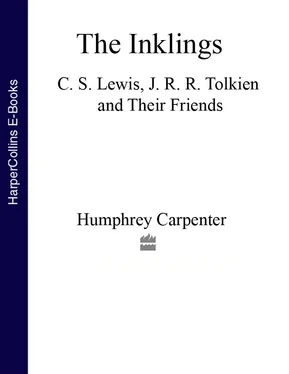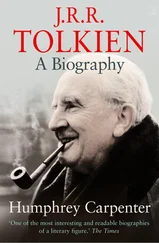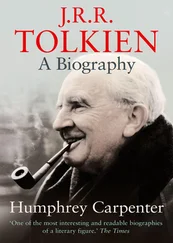His father, a man of peculiarly disjointed thinking, was usually notable for making the wrong decisions. But for once he did the right thing. He removed Jack from Malvern and sent him to the man who had been his own headmaster, and who was now retired in Surrey and taking one or two private pupils. W. T. Kirkpatrick, tall and muscularly lean, was a strict atheist who nevertheless put on his best suit to dig the garden on Sunday. This, however, was his only recorded piece of illogical behaviour: in every other particular his life was ruled by strictly rational principles. He was fearsome in conversation, for no sentence passed his lips that was not ruthlessly logical. When Jack Lewis first met his new teacher on arrival at the railway station, the boy attempted some small talk, remarking that the Surrey countryside was more wild than he had expected. ‘Stop!’ shouted Kirkpatrick. ‘What do you mean by wildness, and what grounds had you for not expecting it?’ Jack did his best, but answer after answer was rejected as being the product of inadequate thought. ‘Do you not see’, Kirkpatrick concluded, ‘that your remark was meaningless?’
Under the tuition of ‘Kirk’ in the two years that followed, the boy learnt to phrase all remarks as logical propositions and to defend his opinions by argument. Not that ‘opinion’ was a term admissible in that household. ‘I have’, Kirkpatrick would exclaim with raised hands, ‘no opinion on any subject whatsoever.’
Soon, Jack Lewis was learning to match his teacher’s mind with dialects of his own, especially in his letters to a Belfast friend, Arthur Greeves, who was prone to vague and illogical statements and who in consequence found himself on the receiving end of Kirk-like arguments. Greeves adhered to the religious beliefs of his childhood, and when he mentioned this in a letter to Lewis there came back a tirade. ‘I had thought that you were gradually being emancipated from the old beliefs,’ Lewis declared. ‘You know, I think, that I believe in no religion. There is absolutely no proof for any of them, and from a philosophical standpoint Christianity is not even the best. All religions, that is all mythologies to give them their proper name, are merely man’s own invention – Christ as much as Loki.’ And Lewis offered his own interpretation of Christianity: ‘After the death of a Hebrew prophet Yesua (whose name we have corrupted into Jesus), he became regarded as a god, a cult sprang up, which was afterwards connected with the ancient Hebrew Jahweh-worship, and so Christianity came into being – one mythology among many.’
This atheism was in fact not the result of Kirkpatrick’s teaching. Knowledge of his tutor’s opinions and access to the rationalist books in the house did encourage Jack, but he had begun to abandon religious belief some years earlier, partly because he found it impossible to make his prayers sincere, partly because he did not think that Christianity had much relation to the largely unhappy world around him, and partly because the Bible did not appeal to him as a story. Or rather, it was when reading pagan stories, especially the myths of the Norsemen, that he experienced his most profound sensations of delight. He began to write a tragedy about the Norse gods. It was in Greek form, under the title ‘Loki Bound’, and it was an attempt to express both the appeal of Northern myth and his contempt for the Christian view of the universe; for in the play Loki sets himself in opposition to Odin the creator of the world, declaring that such creation was wanton cruelty. Lewis also wrote short poems on this theme, picturing God as a brutish force whose hatred has scarred men’s lives.
Yet his own life now was remarkably unscarred. Placid days succeeded one another. He read Homer under Kirkpatrick’s tuition, he walked in the Surrey countryside, he wrote poetry, and he sent for innumerable parcels of books from London shops. ‘How one does want to read everything,’ he remarked to Arthur Greeves, and soon there was little in English literature that he had not encountered. For an atheist, he found delight in unlikely places. Of Malory’s account of the Grail he remarked to Greeves, ‘Those mystic parts are very good to read late at night when you are drowsy and tired and get into a sort of “exalted” mood.’ And when he discovered George MacDonald’s ‘faery’ novel Phantastes on a station bookstall he declared that reading it was ‘a great literary experience’. Meanwhile his progress at academic work was good; indeed it was clear that he was suited for an academic career – and for that only. ‘While admirably adapted for excellence,’ Kirkpatrick wrote to Lewis’s father, ‘and probably for distinction in literary matters, he is adapted for nothing else. You may make up your mind on that.’
At the end of 1916 Jack Lewis won a scholarship to University College, Oxford.
*
It was the summer of 1917. Lewis’s first term as an Oxford undergraduate had been interrupted, not unexpectedly, by his call-up papers, and he was now a cadet in uniform. His battalion was quartered just down the road, in Keble College. Cadets were billeted two to a set of rooms, and the allocations were made in alphabetical order. As a result, Lewis C. S. found himself sharing sleeping quarters with Moore E. F. C. Many years later, Jack Lewis’s brother remarked in his diary, ‘Lewis and Moore: it might just as easily have been Lewis and Sergeant Muggins, or Lewis and Lord Molineux, and the very fact would have been forgotten by now – but it was Lewis and Moore, and when the clerk filled in the names he permanently and almost immediately altered the course of several lives.’
Jack Lewis did not particularly care for his room-mate; he found ‘Paddy’ Moore rather childish. But Paddy’s mother, an Irishwoman who had been separated from her husband for many years, was living in lodgings close by, so as to be near her son; and when they met she and Jack got on very well, so well that he was soon spending week-ends in her company. Later, when he got a month’s leave, he stayed for most of it with the Moores at their Bristol home, going home to his father in Belfast only for the final few days. His father was surprised and hurt at this division of Jack’s time.
Once or twice there had already been incipient romances in Jack’s life. During his Surrey days he had been attracted to a Belgian refugee girl who was staying in the neighbourhood, and had talked about her in his letters to Arthur Greeves – ‘I don’t think I’ve ever been so bucked about anything in my life, she’s an awfully decent sort.’ Later, in his first few months at Oxford, he had been very friendly with a young woman from Belfast, who was in the city with her mother. But before any real romance could begin he met Mrs Janie Moore.
She was aged forty-five, Irish, and lively. She was poorly educated and her conversation was largely illogical nonsense, so in this respect she was a very odd friend for Jack; but something made him enjoy her company. Perhaps it was in large part simply the fact that she made him feel at home. He was never at ease at his real home in Belfast; his father lived according to an enervating daily routine, and was also perpetually inquisitive into his sons’ lives. This made Warnie and Jack draw apart from their parent. Now, when Jack’s military training was over and he was about to embark for the front line in France, he telegraphed to his father asking him to come over to England and say goodbye. His father, typically failing to understand the telegram, did not come. It was little wonder that Jack turned to Mrs Moore for affection.
By the time that Jack left for France he and Mrs Moore were behaving to each other like mother and son. As for the real son, Jack once remarked (years later, to his brother) that Mrs Moore and Paddy ‘hadn’t got on at all well’. In the spring of 1918, Paddy was reported missing in action, and when his death was officially confirmed Mrs Moore wrote to Lewis’s father that Paddy had asked Jack ‘to look after me if he did not come back’. This became the public explanation for what followed, but probably Jack would have looked after her whether Paddy had come back or not.
Читать дальше












